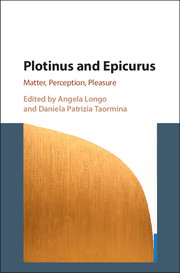SYRIANUS’ LIFE AND WORKS
Information about the life of Syrianus, son of Philoxenus, is scarce, and is limited to what can be deduced from what we know about the life of Proclus, Syrianus’ disciple, who became much more famous than his master. Nevertheless, one date is certain: Syrianus became head of the Platonic school at Athens in 432 ce, after the death of his master, Plutarch. As to Syrianus’ own death, the date which is often given, of 437 ce, is only conjectural, if probable, but it is certain that he died before 439 ce, when Proclus wrote his commentary on Plato’s Timaeus; the past tense verbs in this text indicate that Proclus’ master had already passed away.
Among Syrianus’ numerous works, only his commentary on Aristotle’s Metaphysics has survived, and that in an incomplete form comprising only books 3, 4, 13 and 14. A commentary on two treatises by Hermogenes of Tarsus, an orator of the second to third century ce, On Types of Style and On Argumentative Stances, has also been transmitted under Syrianus’ name. However the most recent editor of these commentaries, H. Rabe, has expressed doubts concerning their authenticity.
But we know that Syrianus gave lectures, not only on works by Aristotle other than the Metaphysics, but also on Platonic dialogues. As regards the latter, we have a commentary on Plato’s Phaedrus, written by Syrianus’ disciple Hermias: he wrote this commentary on the basis of notes taken during his master’s lectures.
